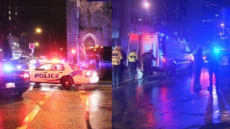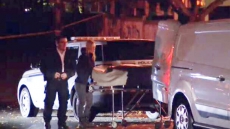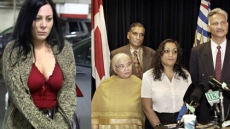TORONTO — Canadian comedy pioneer Dave Broadfoot, who was considered a national treasure for his political satire on the CBC's "Royal Canadian Air Farce," has died at the age of 90.
"We are all deeply sad," Lucy Stewart, producer of "Air Farce," said Wednesday in confirming his death.
"He was a Canadian icon in comedy," added Gerry Dee, star of the CBC sitcom "Mr. D."
"He was a name synonymous with Canadian comedy and paved the way for a lot of us to make that leap into comedy.
"He was just someone that was relatable. He just had that appeal, that lovability that attracted people to his comedy."
Broadfoot was born in Vancouver on Dec. 5, 1925 and began acting shortly after serving in the navy during the Second World War.
In the 1950s and '60s, he appeared on the small screen in the "Wayne and Shuster Show," "The Ed Sullivan Show," "The Big Revue" and "Comedy Cafe." He also appeared on CBC Radio with "Funny You Should Say That."
Broadfoot also toured in revues across the country and in the United States and England.
It was in 1973 that Broadfoot began his 15-year-run on "Air Farce," where he endeared audiences with memorable characters including Sgt. Renfrew of the RCMP who "never gets his man" and a hockey-playing dunce named Big Bobby Clobber.
Then there was David J. Broadfoot, the member of Parliament from Kicking Horse Pass.
Broadfoot won numerous honours, including a Juno for comedy, a Governor General's Performing Arts Award and was named an officer of the Order of Canada.
"(In Canada) you can be the biggest success ever and still have a very, very small bank account because that's the way we are," he said in 2003 as he received the Governor General's award.
He also remarked on receiving an honour from the same government he often poked fun at.
"We're loose enough, liberal enough, accepting enough in this country, we're mature enough that we can make fun of each other and still have great respect and honour each other."
In 2004, Broadfoot joined a troupe of younger performers for a show tour of Canadian military sites in Afghanistan.
''I have always believed if we expect others to put their lives at risk on our behalf, then we have an obligation as performers to back them up,'' he said in an interview with The Canadian Press. ''It's part of our job.''


